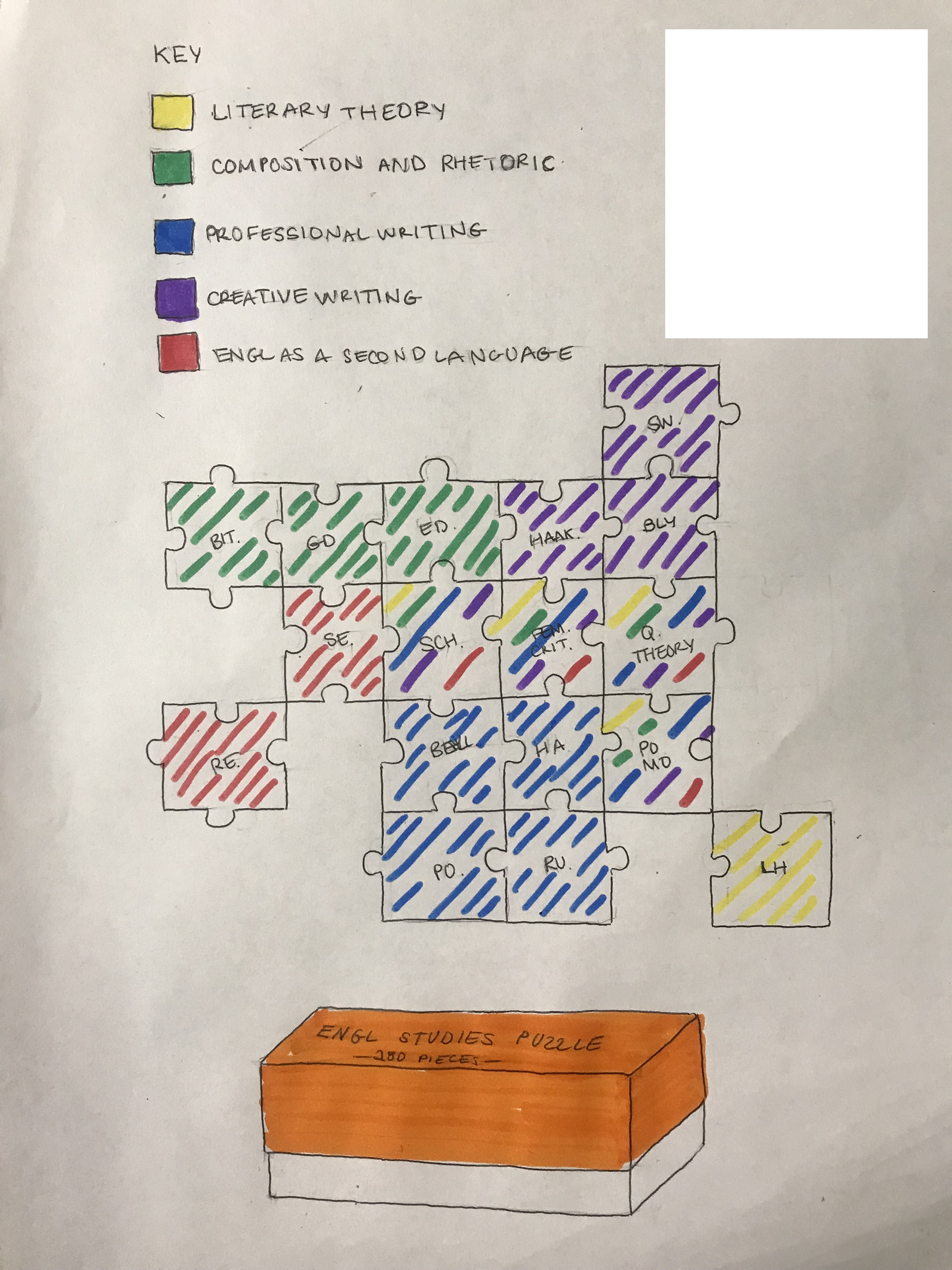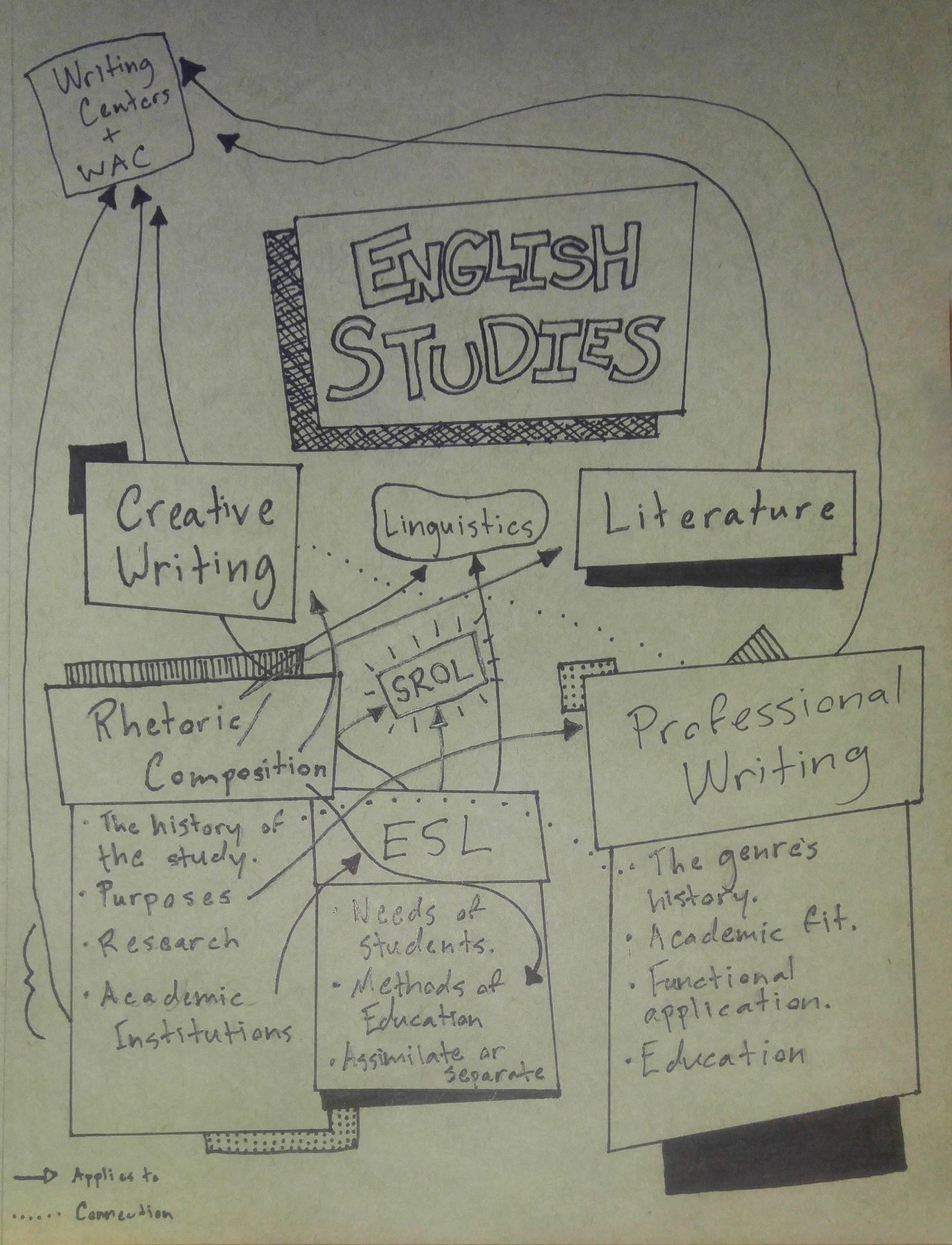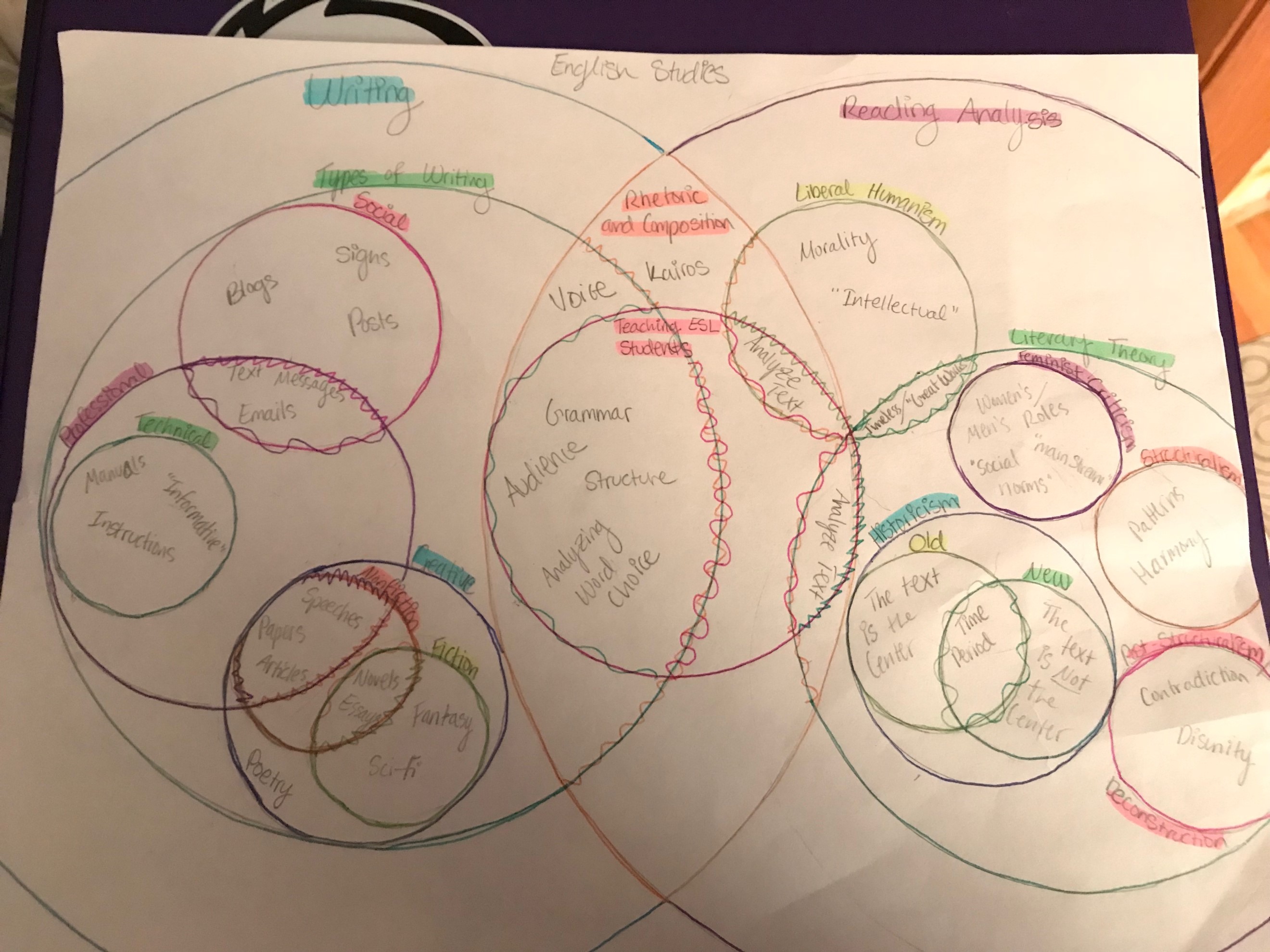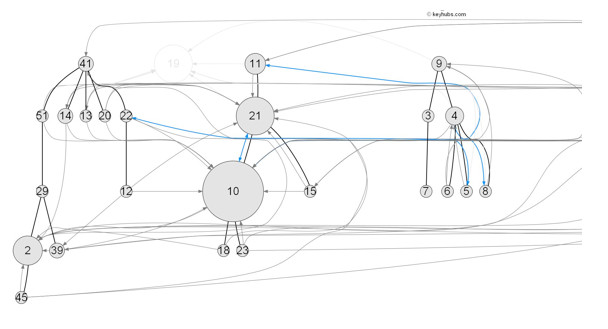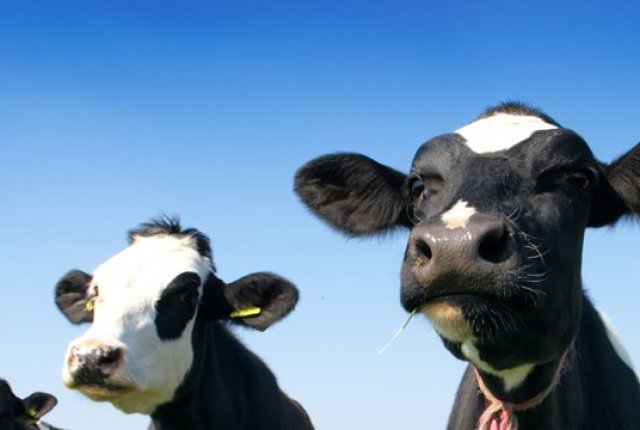Teaching Portfolio
Teaching College English (Graduate)
Several kinds of students in our Master's program take this course. Students range from those who are interested in literary studies but want learn more about writing pedagogy to those who are current high school teachers and would like to learn more about writing theory at the college level. There are also a select few who enroll in this course because they are curious about pursuing doctoral studies in Rhetoric and Composition.
As a result, I structure this course so that it introduces students to contemporary composition theory and theoretical work that has been influential in composition studies. Discussions center on the history of the field, approaches to teaching composition, teaching culturally and linguistically diverse students, and controversies in the field. Student projects have included conceptualizing the idea of “code-brokering” to introduce students to the idea of multiliteracy; arguing for a “digital place-based” pedagogy in an urban two-year college; applying a post-human lens to writing research protocols; and analyzing the disconnect between high school and college educators’ discussions of students’ use of technologies in the writing classroom.
Professional Writing and Diverse Publics (Graduate)
In this Master's-level course, discussions centered on the role of the technical communicator within the contexts of usability, localization, and research. Students also engaged with more recent scholarship on inclusivity, social justice, and globalization. Students produced article-length final projects, proposals for submission to conferences, and discussion forum posts which helped to facilitate meetings. Projects included looking at Beauty Boys’ deployment of YouTube videos as subversive tactical technical communication, rearticulating the role of the grant writer as activist, analyzing the language of the United Nations’ Human Rights document, and exploring the concepts of supercrips and user-writers in the production of a manual for one-handed individuals.
Introduction to English Studies
I have have been privileged to have had the opportunity to teach the intro to the English major course at the University of St. Thomas several times. Because I see value in moving students to think of English broadly and not just encompassing the literary, my course explores how several sub disciplines of English approach theory, pedagogy, research, and practice. That is, students learn the connections and clashes in epistemological priorities among the fields of Rhetoric and Composition, literary studies, professional writing, creative writing, and second language studies. Topics covered include: the history of English, literary theory, writing pedagogy theory, social justice in PW, getting published in CW, and the digital humanities.
Throughout the semester, students craft a theory of English by regularly completing "What is English Studies" reflections in which they revisit their definitions of the field of English. In several iterations of the assignment, students must include a visual that helps to portray how they are conceptualizing the field along with a textual reflection that explains their visual.
Introduction to Professional Writing
Shortly after I began offering this course for the first time at the University of St. Thomas, interest from across university departments began to rise. As a result, this course must remain nimble as it tries to meet the needs of several student and faculty stakeholders. Introduction to Professional Writing is a required course for Professional Writing students in the English Department as well as for Data Analytics Majors. In addition, STEM students who need to satisfy a WAC or English course requirement enroll for the course, as do Literature and Creative writing students who want to learn more about workplace writing situations.
With such varied groups of students, I have prioritized making sure that students understand the different written situations that they will encounter in their workplace. While students produce professional emails, proposals, progress notes, and a report throughout the course, the main focus here is on observing and researching a professional or technical process from their chosen fields and being able to describe its complexity. In this way, they gain a better understanding not only of how communication takes place in the wild, but also how processes might be susceptible to breakdowns.
Writing Grants and Proposals
In this course, students learn about the process of applying for a grant: where grants come from, the role of foundations, the importance of conveying an organization's mission and vision, the different types of grants that exist, the typical sections necessary to complete a grant, and how to assess the progress of their organization’s program. In the course, students learn how to implement qualitative and quantitative forms of data collection, conduct literature reviews, connect ideas through transition statements, and engage with constituents through professional forms of communication such as cover letters, memos, email, and presentations. Although it is not always possible, I like to include a community partnership in this course to give students real-world experience with writing grant proposals.
- Writing Grants and Proposals syllabus
- Writing Grants and Proposals RFP Analysis assignment
- Student Presentation handout
The student handout is from a team of students who presented their idea to our community partner. All identifying information has been redacted.
Social Media and Its Discontents
In this themed FYW course, I ask students to consider social media's affordances allow for new engagements between individuals, while also keeping in mind what might be foreclosed on via digital communication platforms. For example, students read texts such as Twitter and Tear Gas (Tufekci) and So You've Been Publicly Shamed (Ronson) to get a broad scope of the promises and perils of technology in terms of protest and shaming in online spaces. Afterwards, students read pieces on circulation to help them theorize how social media enables ideas and images to not only spread but create new connections among individuals.
In 2019, I taught this as an intensive online summer course that featured contract grading.
Sim Cities: Maps, Places, Power.
In this themed FYW course, the class uses SimCity to think critically about the design of spaces and consider the users of urban places. Students begin by creating a city in the game, and then using that as a springboard to investigate wicked problems that arise in their cities. Stemming from Rittel and Webber's (1973) conceptualization, wicked problems have no definite solution and because they are embedded in social and environmental webs, attempting to solve them can lead to new problems. Students study the implications that wicked problems have not only on cities but also in their own potential fields of study. Students end the course with an ethnographic project in which they triangulate data from observations, visualizations, and textual write ups of a place to begin to determine the contentious meanings that a place holds for various individuals.
Research in Professional Writing (Purdue University: 1 section)
Students in the Professional Writing Major were introduced to research methods in the field. Topics focused on ethics in research, workplace studies, and implementing qualitative methods. Students produced research proposals, annotated bibliographies and presentation reports.
Healthcare Writing (Purdue University: 4 sections)
Students in this class discussed issues in health communication within the context of differing audiences (other professionals, patients, insurance organizations, clients' family members) and the implications of poorly circulated documentation for patient treatment.
Please click on the following links to view specific materials
- Syllabus for ENGL 422
- Assignment Sheets for ENGL 422
- Sample Patient Information Materials
- Sample Patient Information Materials: "Germies Board Game"
Business Writing (Purdue University: 2 sections)
Students completed business communication assignments including background reports, marketing proposals, presentations, job documents, and interviews.
Please click on the following links to view specific materials
Professional Writing (Saint Mary's University of Minnesota: 1 section)
In this concentrated course, I taught nontraditional students--many of whom were already in workplace environments that asked them to communicate professionally-- about business genres and practices. Students were encouraged to find topics that pertained to their workplaces and apply them to this course. For example, in the backgrounder assignment, many students opted to research a policy or procedural change that needed to be addressed at corporations or organizations that they belonged to and then craft an implementation strategy in their proposal assignments, which many students presented at their workplaces.
Please click on the following links to view specific materials
- Syllabus for COM 309
- Sample Student Proposal
Technical Writing Online (Purdue University: 1 section)
In this condensed online course, students learned skills in collaborating with peers from a distance. Students worked on a whitepaper project in which they conducted secondary research on a particular innovation for their fictitious company and proposed a method of implementing aspects of that innovation. Students also developed instructions, which were posted on Instructables.com. Students learned about creating and implementing "key-task" testing and "get-it" testing usability protocols in order to enhance their instructions.
Please click on the following links to view specific materials
- Syllabus for ENGL 421Y
- Assignment Sheets for Instructables Project
- Sample Student Instructables
Introductory Composition (Purdue University: 4 sections)
The first 3 sections of this course Writing about Writing (WaW) and Digital Rhetorics (DR) approaches to teaching first-year composition. For example, students used Tumblr posts as invention material for composing literacy narratives and also composed websites to describe discourse communities that they belonged to to students in other sections of the course. Peer review consisted of providing their peers advice on writing and design choices.
Please click on the following links to view specific materials
- Syllabus for ENGL 106
- Assignment Sheets for Instructables Project
- Video Showcasing Student Literacy Narrative Remediation Projects
Another section of this course was taught as a Writing Across Contexts course in which students developed a language for genre and rhetorical situations through prose and academic sources. Their final assignment pulled from their research project and consisted of asking them to remediate their project into 3 different genres of their choosing (podcasts, videos, speeches, brochures, etc) to be disseminated among different types of audiences. Students also kept and revised a journal on their theory of writing, changing it as their ideas of what it means to be a writer and how writing works evolved with each new reading and assignment.
Please click on the following links to view specific materials
- Syllabus for ENGL 106
- Assignment Sheets for ENGL 106
- Sample of Student Work
Critical Thinking And Writing I & II (University of St. Thomas: 1 section of each)
At the University of St. Thomas, I Implemented two comp-lit course. English 111 focused on having students learn different literary genres (memoirs, short stories, novels), appreciate diverse cultural perspectives, engage in written discourse with texts they read by constructing well thought out theses, and practice different types of high and low-stakes writing (journal entries, formal papers, cover letters).
English 112 asked students to engage in close reading and analysis of various poems (in terms of rhythm, meter, metaphor, etc). Students also learned the language of stage production; conducted academic research; and used textual evidence to support their claims.
Please click on the following links to view specific materials
Animal Sciences/WAC Collaboration (Purdue University: 6 sections)
At Purdue University, the Animal Science department has built a collaborative partnership with the Writing Lab. During my time as a WAC coordinator for an Animal Genetics course, I instructed students on professional writing strategies and genres. Responsibilities included conducting presentations on genre conventions and visual design principles, providing feedback to student memos, letters, and reports, as well as coordinating with the course instructor to communicate student progress and iterative changes to the WAC assignments, schedule, and policies.
Please click on the following links to view specific materials



